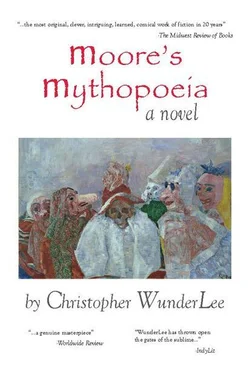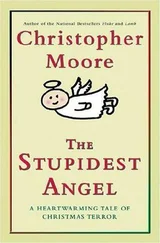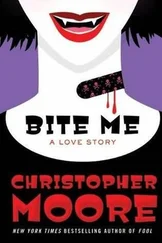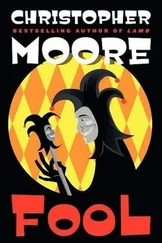Christopher WunderLee - Moore's Mythopoeia
Здесь есть возможность читать онлайн «Christopher WunderLee - Moore's Mythopoeia» весь текст электронной книги совершенно бесплатно (целиком полную версию без сокращений). В некоторых случаях можно слушать аудио, скачать через торрент в формате fb2 и присутствует краткое содержание. Год выпуска: 2010, Издательство: Picaro Editions, Жанр: Современная проза, Фантастика и фэнтези, на английском языке. Описание произведения, (предисловие) а так же отзывы посетителей доступны на портале библиотеки ЛибКат.
- Название:Moore's Mythopoeia
- Автор:
- Издательство:Picaro Editions
- Жанр:
- Год:2010
- ISBN:нет данных
- Рейтинг книги:3 / 5. Голосов: 1
-
Избранное:Добавить в избранное
- Отзывы:
-
Ваша оценка:
- 60
- 1
- 2
- 3
- 4
- 5
Moore's Mythopoeia: краткое содержание, описание и аннотация
Предлагаем к чтению аннотацию, описание, краткое содержание или предисловие (зависит от того, что написал сам автор книги «Moore's Mythopoeia»). Если вы не нашли необходимую информацию о книге — напишите в комментариях, мы постараемся отыскать её.
Moore's Mythopoeia — читать онлайн бесплатно полную книгу (весь текст) целиком
Ниже представлен текст книги, разбитый по страницам. Система сохранения места последней прочитанной страницы, позволяет с удобством читать онлайн бесплатно книгу «Moore's Mythopoeia», без необходимости каждый раз заново искать на чём Вы остановились. Поставьте закладку, и сможете в любой момент перейти на страницу, на которой закончили чтение.
Интервал:
Закладка:
“They say we are not our own to govern, and they are bureaucratic men.”
On his scraps that morning he clearly saw, in his very own handwriting, an order to uncover the root of his purpose (although it was a step in the right direction, he was still suffering from teleophobia). For several nights he’d heard nothing from Flower, not one visit just to say ‘hi’ or sit down for a chat, not a single tickle, no paizogony what so ever (waking with unsoiled trousers), no new information delivered in her very special way (he particularly enjoyed the one in which the message was written all over her body and he had to twist and turn her to read it in its entirety, the conclusion scribbled in her inner thighs), no explanation for her absence, such as a vacation or sabbatical, and so he’d written himself an assignment. If she was going to leave him to do it himself, well then, by god, he’d miss how thersitical she could be and her spanking subtlety (especially when she was procumbent), but he’d carry on.
“Well then, there, now,” he said in character, coaxingly, “methinks you’ve taken a rather quaestuary view of it my friend. You speak only of truth and usury sin, of tossing them moneylenders out of the temple, as it were, but truly, if our monetary worth was the object of our pleasure, would each coin received magnify our inner light, and if so, if so, do we feel this enlightenment on payday, is it an otherworldly experience in which we ascend to a harmonious plain or do we feel sudden quiet, a sudden undulation of the spirit when we hand over those sums and find ourselves free of creditors? Nay, I say, fantasize for a brief moment, that you’ve borrowed some gem from a friend to wear for the festival, it is a sparkling, prideful rock that you wear on your lapel like a tag of prosperity, you strut throughout the crowds, chest puffed, arms back, head high as a hanged man, looking down on the passerbyers to catch their response to your ornamentation. After a few initial acknowledgements, you lose the thrill of it; their observation of it replays over and over again, the same response, until it means so very little to you that it’s plucked off of your collar and placed quietly in your pocket. You then hand it back to your friendly loaner, no more the better for borrowing it, and no better for returning it. Where in there lies pleasure?”
He patiently waits for the effect, languidly sort of acknowledging his voice; one rises slowly, arches her back, stretches lengthily, yawns, turns four times and reseats herself contentedly.
“Imagine, if you will, a proverbial life’s line-up of all the people you’ve ever known, stretching off into the everizon like a chain of sin. With each person, you’re required to give him or her a particular moniker: friend or foe. You walk like a commandant around them, sniff their cologne, stare into their eyes, smell their breath, perhaps, pinch a few butt cheeks, smack a few asses, et cetera, et cetera, and then, you begin to label these phantoms of your memory. This one you say is a ‘friend’, this one you say is a ‘foe’, and so on and so on. How correct do you think you would be? If we were to ask this line of acquaintances, would they concur with your labels or ardently disagree? My money’s on the latter, and here’s why: we are petty fortunetellers, my friends, most of us are not capable of understanding psychology, sociology or any other pertinent ologies that may come into play. One man, whom we assume is not just a friend, but was once actually considered a ‘best’ friend, well he reveals (without guilt or malice of fore-thought), that he had a little tickle, tickle with one of our former girlfriends, or our wife, or he admits that he sabotaged our reputation on several occasions, or that he secretly despised us but was, due to social convention, required to butter up our egos and give us puckered lips rather than his sporked tongue…”
A few heads indolently turn, some snout licking, he thinks the black one might have even winked (Imholtian in its mockery, i.e. teaching a feline that rather than believing people are cats, that the cat is a people), receives a knowing gaze from one, as if to suggest some justice or notion of good to friends and evil to enemies.
“…yes, yes, I see where you are going with this, two negatives make a positive, I believe is the religion, but can we accept this as truth, true truth, versus the other type, the type that appears to be true because we base it upon our own prejudices, our own limitations? I think not, not in ethics, not in morality (for they are different), because an eye for an eye, an offense for an offense, a punch for a punch, a stab for a stab, a hand for a product, money for security, does not equal happiness, or the good. Rather, as we have seen, responding in kind produces the opposite effect, evil plus evil equals double the evil, just as good plus good equals double the good, evil minus evil equals nothing, just as good minus good equals an absence of good, thusly causing there to be no good, and in the absence of good, there lies evil. We are damned if we do, damned if we don’t.
“Now when we use this superstition for government, we speak of justice, i.e. that the ruling body has the right, nay the duty, to eye for an eye criminals, or even, as was the custom in the past, an eye for an organ, fear by superior fire power, what you do to me I do a hundred fold to you, your family, relatives, acquaintances, and co-workers, which is to suggest that they can make things good by inflicting ever more evil, that by forcing evil into even worse conditions it will somehow, perhaps through psychological and social alchemy, suddenly turn towards the good. Well we know, as per experimentation and history, that this is simply not so, rather inflicting evil upon evil only makes more evil.”
They have, by now, noticed they’re on stage, and begin to adjust themselves slightly, turning good sides towards the audience, playfully toying with lint, strutting across the platform, attempting to retrieve some acknowledgement, while Joseph, as Strunckly as he possibly can, tries to roll with the ad-libing and ad-moving.
“Just as we engender art for the sake of it solely, or study history not because we believe blankly that in this way we won’t repeat it (proven time and time again to be false) but for the sake of knowing, justice is beneficial and good on its own merits, almost naturally, although I too would admit that one man’s justice is another man’s prejudice, however the concept, that of being just, or receiving a just sentence, or existing within the comforting arms of a just society, is, in and of itself, good.”
He pauses for effect, begins his Humian last words:
“Sadly, it must be admitted, that for the most part, you see how I partition my observations, people, I speak here generically, are myopic in their comprehension of the grander terminology of existence, i.e. they do not view them in their entirety but rather place one hand over one eye and read them like lines of script. (It bothers me that wisdom is only found in the wise). Herein lies our greatest of fallacies, for we, as a unit, a whole, and its particulars, determine the definition of our words, we imbibe them with their influence, their power, and yet we behave as though they are independent themselves, not our creations, but organisms naturally evolving. Justice is community property, belonging to all, and each of us should have equal access to it, however, too often than not, one person or a group of persons, decides that they will be the custodians of our honorable estate, and it is then that we lose unmitigated access to our rights and privileges granted under human law. This is linguistic tyranny my friends, purely an oligarchy of the provisions of our existence.”
Joseph waits for applause — receives none, and feels quite justified…
Читать дальшеИнтервал:
Закладка:
Похожие книги на «Moore's Mythopoeia»
Представляем Вашему вниманию похожие книги на «Moore's Mythopoeia» списком для выбора. Мы отобрали схожую по названию и смыслу литературу в надежде предоставить читателям больше вариантов отыскать новые, интересные, ещё непрочитанные произведения.
Обсуждение, отзывы о книге «Moore's Mythopoeia» и просто собственные мнения читателей. Оставьте ваши комментарии, напишите, что Вы думаете о произведении, его смысле или главных героях. Укажите что конкретно понравилось, а что нет, и почему Вы так считаете.












